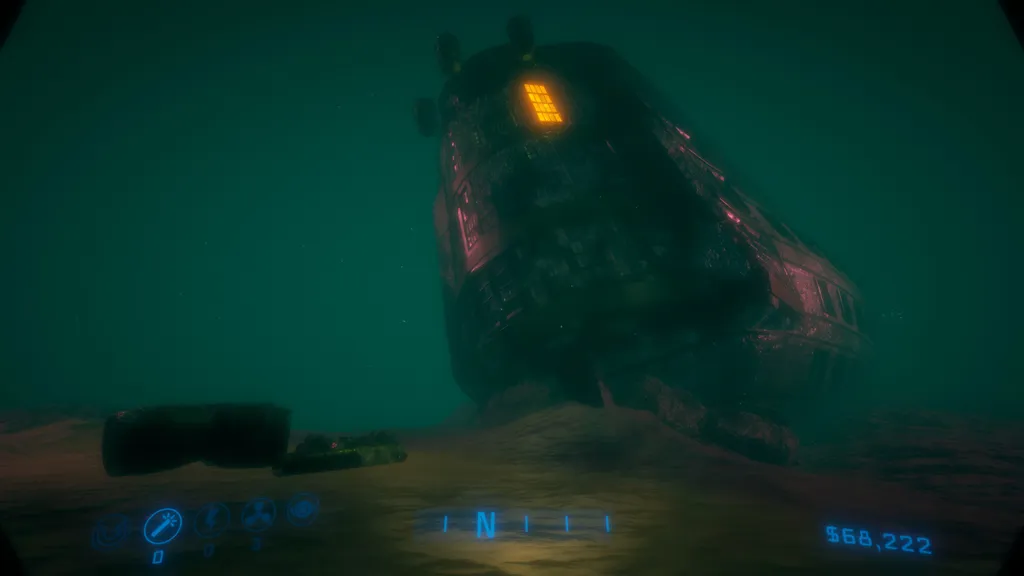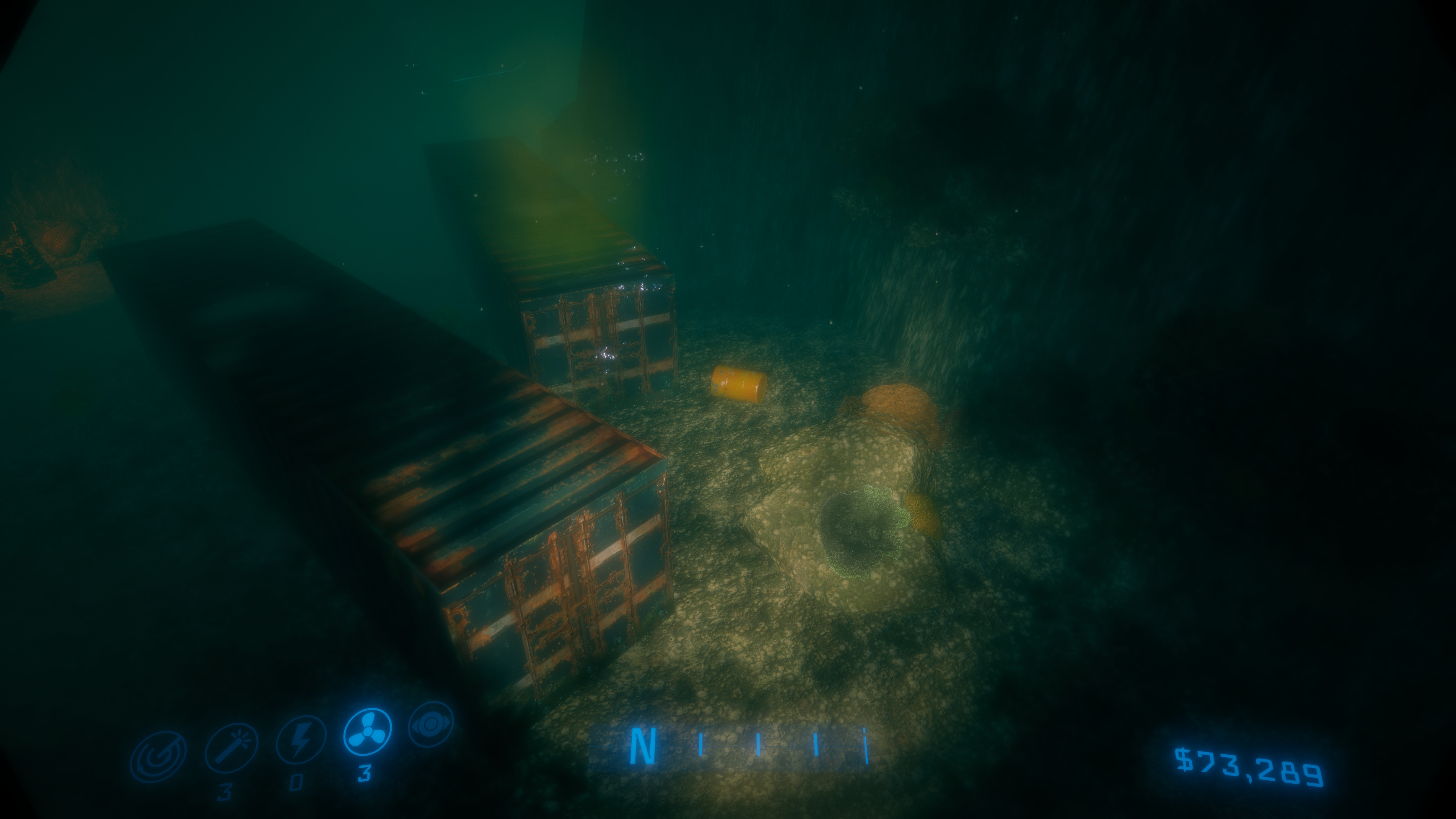I often find myself saying that VR is ideally suited for shorter experiences, but then criticizing games for having a short length. I swear I’m not a hypocrite; when I rate something down for its small runtime it’s usually because I don’t feel like I’m seeing the fully finished article. It might be that the story ends long before things get interesting, or its gameplay mechanics don’t feel fully fleshed out. Short VR can be great, but it has to feel self-contained and properly fitted.
Though it’s far from perfect, Neptune Flux is a good example of this.
Developed by Zoxide Games and just reaching PSVR after hitting PC VR last year, Neptune Flux is a sort of short story with some added gameplay mechanics. You play as Sarah, a member of a deep sea colonization mission known as A.Q.U.A.. She’s grown up in a world in which the surface is at war, and mentored by her mother who kept her safe under the sea. Her mother has been missing for some time now, though, and just as Sarah begins to move past it, she begins to discover pieces that may lead her in the right direction.
Things pick up during a routine job in which Sarah is fixing A.Q.U.A. equipment in her one-man submarine. The story takes some unexpected turns and has some relatable elements to it, but its execution stumbles. Much of the game’s plot involves you making startling under sea discoveries — the kinds that would make the history books — just a few minutes apart from each other in a site that’s supposedly existed for a while, and there’s little build towards an ending twist that feels random and flat. That said, the script is sharp and Sarah is a likable lead based on the little we see of her. There’s also little time for it to drag as the whole game only lasts about an hour.
In those 60 minutes you’ll explore the small area of ocean around you uncovering wrecks, solving some light puzzles, and salvaging scraps and artifacts for cash. Though the game is short there is a small upgrade system (with just two options) but you’ll get so much currency just for completing objectives you’ll never really need to scrounge for more. It’s a little strange that the system is even there in the first place given that the game is so short.
If the thought of scurrying around a fairly murky ocean floor setting, often randomly searching for your next destination doesn’t appeal to you then take caution here. Personally, the small area and simple waypoint markers mostly staved off any monotony, but Neptune Flux is never exactly a thrilling time, either. What it is instead is atmospheric; from the dark confines of Sarah’s sub to the moody silence of the ocean, the game is pleasingly immersive, if never ambitious enough to really do anything truly memorable with that immersion.
And that’s about it; there’s not much else to it. What you get here is a short, enjoyable adventure that has its problems but still feels complete.
Neptune Flux is short and inessential, but serves as a good example of a satisfying, self-contained VR short story. Perhaps Zoxide once had dreamed of it being more than that, but the immersive atmosphere and interesting — if flawed — story still made this a journey I was glad I went on.
Neptune Flux is already available on Oculus Rift and HTC Vive for $7.99. It launches on PlayStation VR next week for the same price. Read our Game Review Guidelines for more information on how we arrived at this score.



























